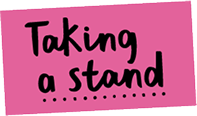Stage 1
Tell us about you
Your application is your chance to show us you’ve got the right skills for the job.
Tell us about your experience
A well written Personal Statement is really important. It’s an opportunity to tell us how your skills and experience match what’s required in the role you’re applying for.
Give us examples
Look at each of the criteria listed in the job spec and include an example for each one of how you’ve demonstrated each required skill in your current or previous role.
They don’t even have to be work-based examples. They could be from school, volunteering or your personal life.













